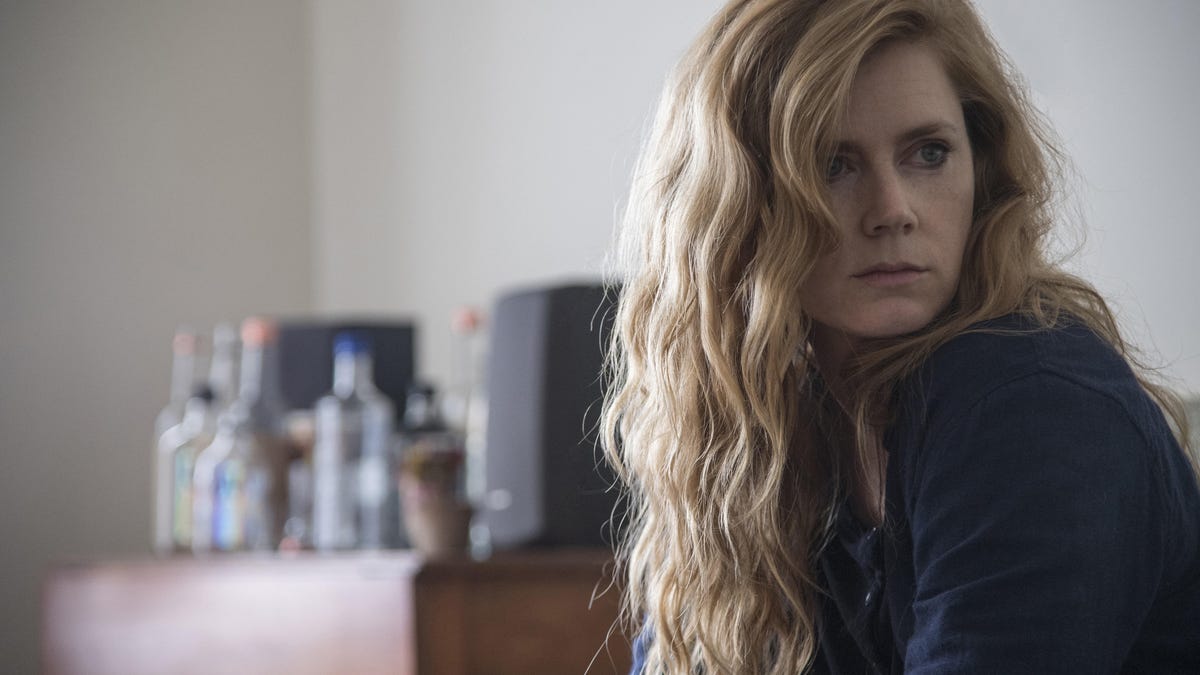After Sharp Objects, more mystery novels deserve a slice of HBO
Commentary: As I watch the new Sharp Objects miniseries, I keep wondering why all my favorite mystery books can't be adapted for the screen the same way.

Amy Adams as Camille in Sharp Objects.
Mystery novels/movies/shows are my guilty pleasure. I grew up on Agatha Christie but later graduated to Nordic noir, Patricia Highsmith, Elmore Leonard and some of Manuel Vázquez Montalbán's Pepe Carvalho (we're both from Barcelona, have lived abroad and love eating). If I'm sick or lazy, I seek solace sipping tea while I lie on the sofa under a blanket and watch some Miss Fisher's Murder Mysteries on Netflix.
That's why the minute I learned HBO was adapting Gillian Flynn's Sharp Objects, I got the novel. First of all, I like Flynn. She kept me hooked with Gone Girl (I really didn't see that plot twist coming). Also, I prefer to watch my mysteries after I've read them. And, of course, I was a fan of Big Little Lies, the bleak, female-driven mystery novel directed for HBO by Jean-Marc Vallée, who's also directing Sharp Objects.
So far I'm really enjoying the show. It delves into the tormented life of Camille (Amy Adams), a St. Louis-based reporter whose big break takes her to her native Wind Gap, Mo., to report on the deaths of two young girls. The show perfectly translates to images and sounds most of the many rich scenes from Flynn's book, and it even adds a few layers. Like when we find out Camille's preferred driving soundtrack is Led Zeppelin. Also, some of her lines in the show are even sharper than in the novel.
The show's allowing me to relive my enjoyment of the book in eight perfectly designed one-hour doses. That's why I'd like to see more of these crime novels getting the HBO treatment.
Mysteries are complex stories filled with puzzles, suspects and investigators. Novels allow for endless inner thoughts, background stories, doubts, regrets, demons, humor, silly flirtations and human moments. With both those points in mind, this is a genre that lends itself better to long-format adaptations.
Other stories deserve the Sharp Objects-style HBO treatment too. Like Patricia Highsmith's Tom Ripley novels. There've been several excellent movies, but writer and TV creator Neil Cross was supposed to be working on a TV adaptation back in 2016. I really like his Luther, but as is the case with much British TV, the seasons tend to be on the short side. Even the TV version of the CB Strike novels -- penned by J.K. Rowling under the pseudonym Robert Galbraith -- cut books of more than 400 pages into just two episodes each.
Also, what about Donna Tartt's The Secret History? It tends to get included in lists of book adaptations that could never happen and its plot is complicated enough to cause massive headaches to any veteran film screenwriter. But if HBO managed to successfully adapt Game of Thrones, which was once considered unproducible, the network should be able to tackle this one.
Emily Blunt in The Girl on the Train.
And while I'm imploring, can The Girl on the Train get a redo? It was my favorite book of 2015, but the condensed film version more than disappointed me -- and others too, earning it a rating of 48 on CNET sister site Metacritic. Not even Emily Blunt was able to save it.
I'm OK with the book's setting being changed from London to New York for the movie. Sort of. But didn't the filmmakers understand these were struggling characters without a lot of money? Instead, we get characters living in a nice suburb with a huge house and not much appearance of financial struggle. And again, the condensed plot gets in the way of character development, chipping away at author Laura Hawkins' gradual unwrapping of the mystery at the heart of the story.
It should be easier to adapt source material that's already good to begin with. To squeeze out all the goodness (or badness) a bleak mystery has to offer. Let it breathe. Give it enough episodes. Don't discard the intimate moments. Also, hire musical supervisor Susan Jacobs for everything. She's a regular Vallée collaborator, and I've developed the habit of Shazam-ing everything she works on. Because her soundtrack selections deserve a Spotify list.
Culture: Your hub for everything from film and television to music, comics, toys and sports.
Technically Literate: Original works of short fiction with unique perspectives on tech, exclusively on CNET.

